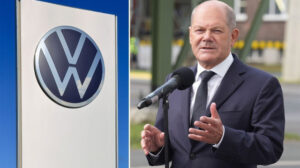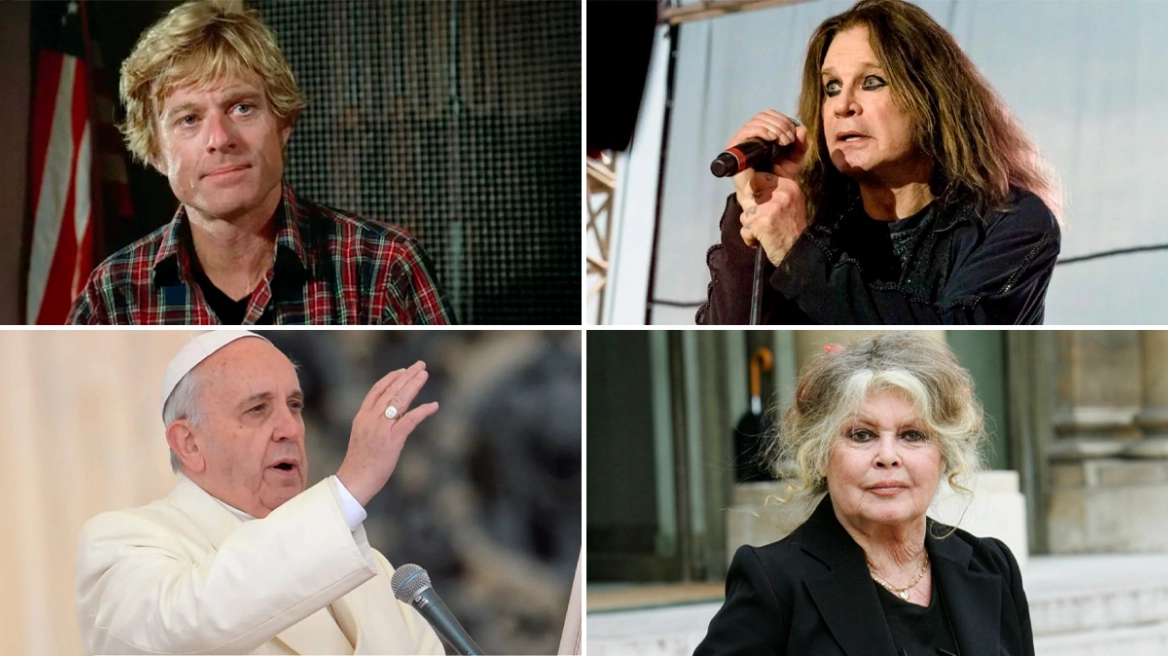Could the closure of two Volkswagen plants trigger a domino effect that will hit the already weakened governing coalition under Olaf Scholz?
Europe’s biggest carmaker announced this week that it is considering closing two plants in Germany, a move that inevitably leads to a clash with powerful unions representing tens of thousands of workers as the country’s most important industry battles for its future. A future that is perhaps less uncertain than that of the Solts government. If a VW plant in Germany finally closes, it will be the first in its 87-year history. But the problem is even bigger.
As Bloomberg reports, Germany’s image as an auto industry superpower is suffering from VW’s slow decline. The automaker that created the iconic Beetle has issued a warning that it will have to close plants for the first time in its 87-year history.
Germany is facing the most symbolic moment in its history of industrial decline as its largest car manufacturer is about to go through the Rubicon of factory closures. VW’s announcement is more than a belated recognition of business reality. It is a blow to the country’s own image as an industrial superpower and an economy that was the world’s largest exporter at the turn of the century.
It is also a recognition of the harsh reality of the consequences for a nation that came together in haste after the fall of the Berlin Wall. The right-wing AfD, and left-wing populists have exploited this very reality of the East-West divide something the mainstream political system has been unable to stop.
In the short term, their electoral gains are another blow to Chancellor Olaf Scholz’s beleaguered coalition.
In the long term, with the 2025 federal elections on the horizon, the question is how to address the root cause of voter discontent. And much of that depends on whether Germany can finally achieve another economic miracle of sorts: a rapid transition from an exporting car manufacturer to a clean energy powerhouse that leads the way in chip and battery production.
The chronicle of VW’s decline is an example of how to get behind the times and it reflects the flaws in what was Germany’s model for success and calls into question whether the once mighty European steam engine will continue to lead the way in Europe.
“Volkswagen’s problems are partly the result of poor business decisions, but VW is also a good example of the huge difficulties Germany faces as a business location,” comments Carsten Brzeski, head of macro at ING. “Germany has been losing its competitiveness for years and this is now affecting the former crown jewels of the German economy.”
In Chwickau, a medium-sized city in the east where VW built 247,000 electric cars in the past few years, along with 12,000 bodies for Lamborghini and Bentley models, cost-cutting measures were already in place long before the prospect of a factory lockout arose. The Chvikau factory was slow to move to electrification, as electric models remain too expensive and the incentives are fading. VW, while still very profitable, has had a bumpy ride in the transition, first clinging to diesel engines and then overreaching with a frontal assault to catch up,
The company, based in Wolfsburg in the western state of Lower Saxony, was one of hundreds of firms that jumped at the chance to take over factories in former East Germany after reunification, including the one in Čvikau. “Every family is connected in some way to this Volkswagen plant, even if it’s the butcher,” said Thomas Knabel, a local official of the IG Metall union representing workers at the plant.
Closing individual plants is devastating to such communities and apparently comes at a political price for Scholz. The auto industry “generates” about 4% of German GDP and an additional 4% when related sectors such as metallurgy or rubber manufacturing are taken into account, according to Bloomberg Economics.
As Martin Ademer, a BE economist, puts it, “The importance of the automotive industry for the German economy has declined in recent years, but it is still a very critical sector.” Cars are an integral part of Germany’s modern identity, a benchmark of pop culture and an argument for politicians: Whether it’s Herbie the Love Bug in Walt Disney films, Janice Choplin in her 1960s psychedelic Porsche, or Donald Trump complaining about the number of Mercedes-Benz and BMW cars on New York’s Fifth Avenue.
Indeed, the VW story is the story of postwar Germany, a rise against the odds, linked to the postwar miracle that transformed a war-ravaged country into the region’s greatest industrial power.
With the advent of the 21st century, VW’s ability to tap demand from the growing Chinese middle class has helped it overcome the fate of its Detroit rivals. But then its dependence on Asian consumers became a problem.
Its high level of industrial output in 2017 was eroded by the rise of advanced Chinese manufacturing and successive crises, from the pandemic to the disruption of Russian imports of cheap natural gas after the invasion of Ukraine.
Another question is whether Germany still remains attractive to business. With infrastructure suffering from decades of underinvestment in the name of nearly balanced budgets, and bureaucracy a problem for business, a survey of 180 economists conducted by the Munich-based Ifo institute concluded in May that Germany lacks attractiveness .
The response of the Solz government, in a hasty attempt to appease voters in the restive eastern states, was largely driven by generous subsidies to companies that opened factories there. Monica Schnitzer, an economist and adviser to the government, warns that it is too early to write off the country’s status as a leading industrial player.
“German companies can continue to succeed if they pioneer the latest technologies and high-quality products while keeping costs under control,” she says. “Germany still has many leaders in the global market, especially among its so-called unsung champions who dominate niche markets.”
Ask me anything
Explore related questions





